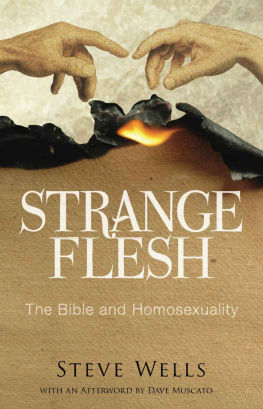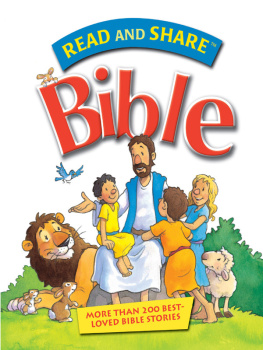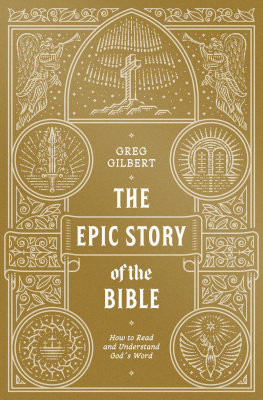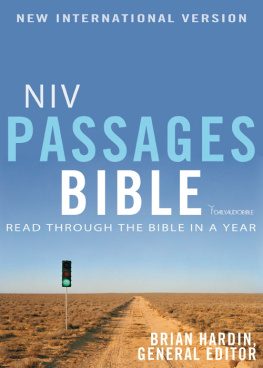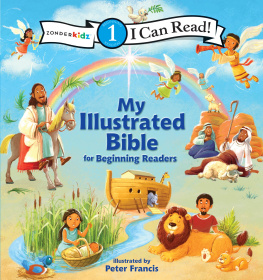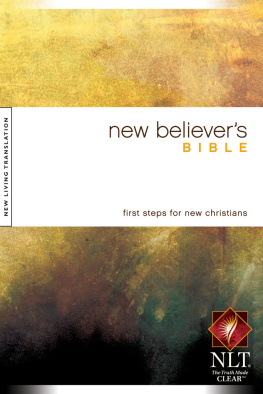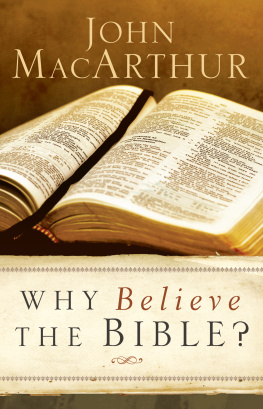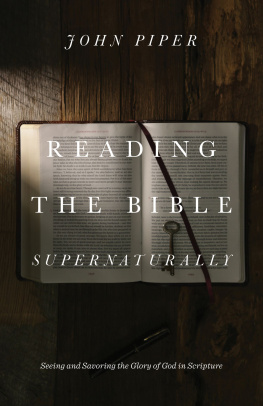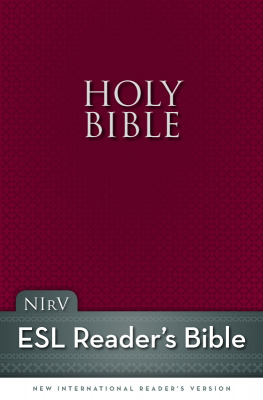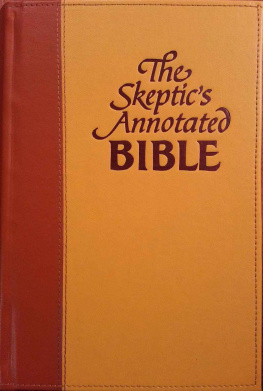Also by Steve Wells:
Drunk with Blood: Gods Killings in the Bible
On the web at:
SkepticsAnnotatedBible.com
DwindlingInUnbelief.blogspot.com

Published by SAB Books, LLC
Copyright 2012 by Steve Wells
All rights reserved
No part of this book may be reproduced in any form or by any electronic or mechanical means including information storage and retrieval systems, without permission in writing from the author. The only exception is by a reviewer, who may quote short excerpts in a review.
Library of Congress Cataloging-in-Publication Data
Wells, Steve
The Skeptics Annotated Bible
ISBN: 978-0-9882451-0-5
LCCN: 2012917269
1. ReligionControversial literature
2. BibleCriticism, interpretation, etc.
3. Atheism
4. Christianity and atheism
I. Title
First Edition: November 2012
10 9 8 7 6 5 4 3 2 1
For Michael
Alphabetical Index of the Books
of the Old and New Testaments
Contents
Book Abbreviations
Acts | Acts | Jude | Jude |
Am | Amos | 1 Kg | 1 Kings |
1 Chr | 1 Chronicles | 2 Kg | 2 Kings |
2 Chr | 2 Chronicles | Lam | Lamentations |
Col | Colossians | Lev | Leviticus |
1 Cor | 1 Corinthians | Lk | Luke |
2 Cor | 2 Corinthians | Mal | Malachi |
Dan | Daniel | Mic | Micah |
Dt | Deuteronomy | Mk | Mark |
Ec | Ecclesiastes | Mt | Matthew |
Eph | Ephesians | Nah | Nahum |
Est | Esther | Neh | Nehemiah |
Ex | Exodus | Num | Numbers |
Ezek | Ezekiel | Ob | Obadiah |
Ezra | Ezra | 1 Pet | 1 Peter |
Gal | Galatians | 2 Pet | 2 Peter |
Gen | Genesis | Phil | Philippians |
Hab | Habakkuk | Philem | Philemon |
Hag | Haggai | Pr | Proverbs |
Heb | Hebrews | Ps | Psalms |
Hos | Hosea | Rev | Revelation |
Is | Isaiah | Rom | Romans |
Jas | James | Ru | Ruth |
Jer | Jeremiah | 1 Sam | 1 Samuel |
Jg | Judges | 2 Sam | 2 Samuel |
Jl | Joel | SofS | Song of Solomon |
Jn | John | 1 Th | 1 Thessalonians |
1 Jn | 1 John | 2 Th | 2 Thessalonians |
2 Jn | 2 John | 1 Tim | 1 Timothy |
3 Jn | 3 John | 2 Tim | 2 Timothy |
Job | Job | Tit | Titus |
Jon | Jonah | Zech | Zechariah |
Jos | Joshua | Zeph | Zephaniah |
Introduction
For nearly two billion people, the Bible is a holy book containing the revealed word of God. It is the source of their religious beliefs. Yet few of those who believe in the Bible have actually read it (all of it, that is, not just carefully selected bits and pieces).
This must seem strange to those who have never read the Bible. But anyone who has struggled through its repetitious and tiresome trivia, seemingly endless genealogies, and pointless stories and laws, knows that the Bible is not an easy book to read. So it is not surprising that those who begin reading at Genesis seldom make it through Leviticus. Believers that try to do so continually face a disturbing dilemma: their faith tells them they should read the Bible, but by reading the Bible they endanger their faith.
When I was a Christian, I never read the Bible. Not all the way through, anyway. The problem was that I believed the Bible to be the inspired and inerrant word of God, yet the more I read it, the less credible that belief became. I finally decided that to protect my faith in the Bible, Id better quit trying to read it.
I think most Bible-believers find themselves in that positionalthough few will admit it. Not even to themselves.
The most popular solution to this problem is to leave the Bible reading to the clergy. The clergy then quote from the Bible in their writings and sermons, and explain its meaning to the others. Extreme care is taken, of course, to quote from the parts of the Bible that display the best side of God and to ignore those that dont. That this approach means that only a fraction of the Bible is ever referenced is not a great problem; because although the Bible is not a very good book, it is a very long one.
But if so little of the Bible is actually used, why isnt the rest deleted? Why arent the repetitious passageswhich are often contradictory as wellcombined into single, consistent ones? Why arent the hundreds of cruelties and absurdities eliminated? Why arent the bad parts of the Good Book removed?
Such an approach would result in a much better, but much smaller book. To make it a truly good book, though, would require massive surgery, and little would remain. For nearly all passages in the Bible are objectionable in one way or another. But with a little luck and much careful editing, perhaps a small pamphlet could be produced from the Bibleone that could honestly be called good.
Perhaps. But to the Bible-believer the entire Bible is inspired and has God as its author. Each passage contains a message from God that must not be altered or deleted. So the believer is simply stuck with the Bible, with no choice but to call it good, true, beautiful, and perfect. When the Bible seems otherwise, as it nearly always does, the problem lies with the believers interpretation of the Biblenot with the Bible itself.
The believers defense of the Bible is assisted by those who publish it. They are invariably believers as well, and are interested in promoting and defending the Bible. Millions of such Bibles are published and distributed each year by believers in their tireless and tiresome effort to propagate their beliefs. Consequently, nearly everyone, believer or skeptic, has at least one copy. Among these Bibles will be found many different versions, but all have one thing in common: all are believer-friendly editions that support, promote, and defend the Bible.
The Skeptics Annotated Bible (SAB) attempts to remedy this imbalance. It includes the entire text of the King James Version, but without the pro-Bible propaganda. Instead, passages are highlighted that are an embarrassment to the Bible-believer, and the parts of the Bible that are seldom read in any church, Bible study group, or Sunday School class are emphasized. For these are the passages that test the claims of the Bible-believer. The contradictions and false prophecies show that the Bible is not inerrant; the cruelties, injustices, and insults to women, that it is neither good nor just.
Next page


